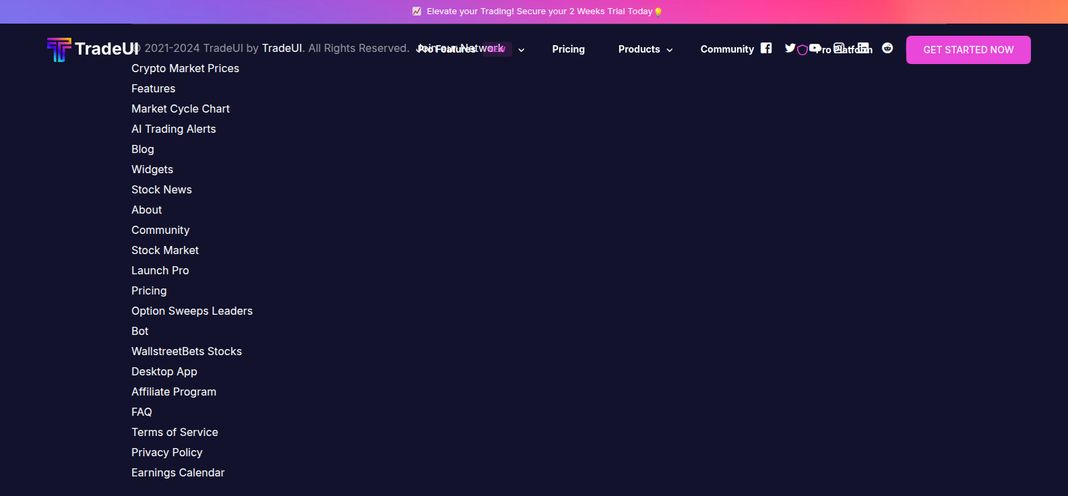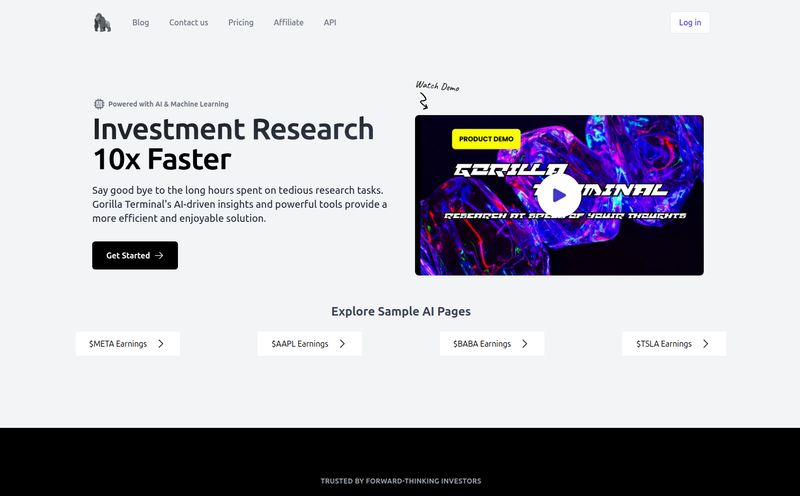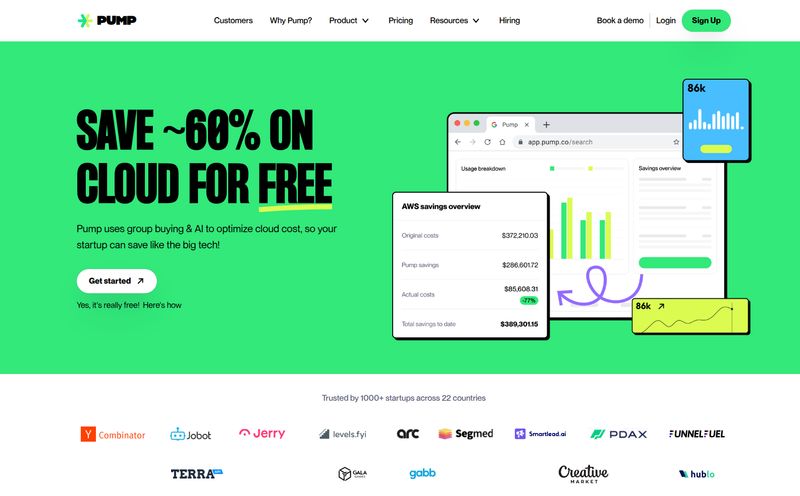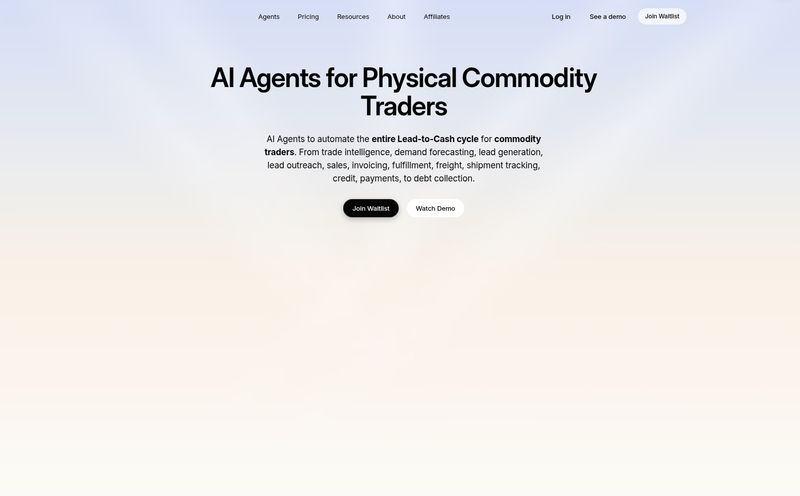Ever come across a tool online that’s so clever, so out-there, you just have to try it? And then, just as quickly as you found it, it vanishes. Poof. Gone. It happens all the time in the fast-moving tech world. One minute you're bookmarking a game-changing app, the next you're staring at a 404 page or a quiet announcement of its demise. For me, one of those tools was Potato.trade.
The name itself was quirky, memorable. It didn't scream 'serious finance,' which was honestly part of its charm. It felt approachable, almost playful. But the idea behind it? Man, what a concept. It was one of those services that made you think about the future of, well, everything. In this case, the future of retail investing.
So, let's take a little walk down memory lane, pour one out for a tool that burned bright and fast, and see what lessons we can glean from its story. Because the tale of Potato.trade isn’t just about a defunct website; it's about a bigger shift in how we think about AI, data, and our money.
So What Was Potato.trade, Anyway?
Imagine you could translate your gut feelings about the world directly into an investment strategy. That was the magic trick Potato.trade was selling. It was, at its core, an AI-powered thematic investment engine.
It was simple. Brilliant, really. You’d type in a phrase, some zeitgeist-y observation about the world, and its AI would chew on it and spit out a list of relevant stocks. Think of it like a magic 8-ball for your portfolio, only instead of “Reply hazy, try again,” it gave you tickers.
The examples they used were pretty provocative. Things like:
- "We're at war with China"
- "A run on the banks"
- "Green energy is the future"
You’d feed the machine your theme, your narrative, your fear, or your hope. And its AI would go to work, connecting that abstract idea to tangible, publicly traded companies. It was the ultimate shortcut for thematic investing, a practice that usually involves hours of reading industry reports, listening to earnings calls, and basically becoming a mini-expert in a specific sector. Potato.trade promised to do all that heavy lifting in seconds.

Visit Potato.trade
The Seductive Allure of AI-Powered Investing
Let's be honest, the appeal is obvious. We're all drowning in information. The 24/7 news cycle, the endless firehose of social media, the market commentary... it's a lot. The idea of an intelligent system that could filter all that noise and find the signal? That’s the holy grail.
Potato.trade tapped directly into that desire. It democratized a sophisticated approach. Traditionally, building a thematic portfolio was something reserved for hedge funds or very, very dedicated retail investors with a ton of time on their hands. This tool put that power, or at least a version of it, into anyone's hands. It felt like you were getting an edge, a secret weapon in the cutthroat world of the stock market.
I’ve spent years in the SEO world, and I see the parallels. We have AI tools that can generate content outlines, suggest keywords, and even write entire articles. They save time, they uncover opportunities. And just like with those tools, the initial reaction to Potato.trade was a mix of excitement and a healthy dose of, 'is this too easy?'
The Inevitable Cracks in the Potato
Of course, nothing is ever that simple. While the concept was fantastic, there were some pretty big question marks hanging over the whole operation. The biggest one for me, and for many others, was the 'black box' problem.
We could input our theme, and we could get an output of stocks. But what happened in between? What data was the AI trained on? What were its biases? How did it define a connection between "a run on the banks" and, say, a specific regional bank or a gold ETF? We just didn't know. And when you're talking about putting real money on the line, 'just trust the algorithm' is a tough pill to swallow.
I’ve always been wary of tools that dont show their work. In my experience, the best tools are collaborators, not oracles. They give you data, they give you suggestions, but they also give you the context to make your own informed decision. Relying solely on a black box AI for financial choices feels less like investing and more like gambling with a very smart, very mysterious dealer.
The Big Pivot: From Potato to Telescope
And so, we arrive at the big reveal. If you go to Potato.trade today, you won't find the thematic investing tool. Instead, you're greeted with a simple, clean message:
"We are now an AI Finance solutions company called Telescope. We appreciate your support and invite you to explore our new direction in AI-powered financial solutions. For more information, please visit telescope.co"
The company didn't die; it went through a metamorphosis. This is a classic startup story. A cool, consumer-facing (B2C) idea gets traction and buzz, but perhaps struggles with a viable business model or the inherent risks. So, they pivot. They take their core technology—the AI engine—and repackage it for a different audience. In this case, they've moved into the enterprise (B2B) space as 'Telescope', an "AI Finance solutions company."
This makes a ton of sense. Selling AI insights to large financial institutions is likely a much more stable and lucrative business model than a free or low-cost tool for individual investors. The liability is different, the contracts are bigger, and the clients have a deeper understanding of the technology's limitations. It's the less glamorous but often more profitable path. A bummer for us retail folks who liked the quirky tool, but a smart business move.
What We Can Learn from This Whole Thing
The short, interesting life of Potato.trade leaves us with a few takeaways. First, it's a testament to the sheer speed of innovation. Ideas like this are bubbling up constantly. Some will stick, many will fade or pivot like this one did. It's a reminder to always be learning, but also to not get too attached to any single platform.
Second, it reinforces the importance of due diligence, especially with AI. The 'black box' problem is real. Whether it's an AI stock picker or an AI content writer, we need to be critical thinkers. We should ask how it works and what its limitations are before we hand over our trust (or our cash).
Finally, it shows that even a 'failed' product can be a success. The technology and the lessons learned from Potato.trade didn't disappear. They evolved into Telescope. The spirit of the idea—using AI to make sense of complex financial narratives—is still very much alive, just in a different package. It was a stepping stone, and that's a perfectly valid role for any new tech to play.
Frequently Asked Questions about Potato.trade
What exactly was Potato.trade?
Potato.trade was a web-based service that used artificial intelligence to suggest stocks. Users would enter a phrase or theme about current events (like "renewable energy boom"), and the AI would provide a list of companies it considered relevant to that theme.
Is Potato.trade still available to use?
No, the service is no longer available. The company behind it has pivoted to a new business model and has rebranded as Telescope, which focuses on providing AI finance solutions for businesses.
So what is Telescope?
Telescope is the new company that evolved from Potato.trade. According to their website, they are an "AI Finance solutions company," which suggests they now provide their AI technology and services to other businesses in the financial sector rather than directly to individual investors.
Did Potato.trade cost anything?
It's unclear if Potato.trade ever had a formal pricing structure, as it was a relatively new tool before it was discontinued. Many users experienced it as a free-to-use platform, likely while it was in a beta or proof-of-concept phase.
Is using AI for investing a good idea?
It can be a powerful tool, but it comes with risks. AI can process vast amounts of data far faster than a human can, potentially uncovering unique opportunities. However, it's crucial to understand the AI's methodology, its potential biases, and its limitations. It's generally advised to use AI as a supplementary tool for research and idea generation, not as a replacement for your own judgment and a solid investment strategy.
A Fond Farewell
So, here's to Potato.trade. It was a weird, wonderful, and thought-provoking little tool that gave us a glimpse into a possible future of investing. It may be gone, but the conversation it started is more relevant than ever. As AI continues to weave its way into every corner of our lives, the lessons from this quirky little stock picker—about innovation, skepticism, and adaptation—are worth remembering. Now, on to see what the next big thing is.
References and Sources
- The new company that evolved from Potato.trade: Telescope



